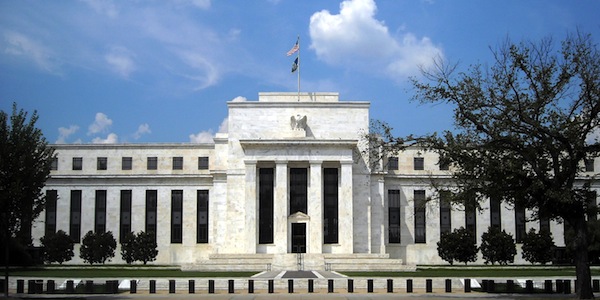On Sept. 17, just before 2:00 p.m. Eastern time, countless numbers of hands hovered over keyboards, waiting for the moment when they could quickly tap out the news that everyone in the U.S., and perhaps around the globe, had been waiting for with fear and trepidation. By 2:14 p.m., we knew: The Federal Reserve was not raising rates.
Not yet, anyway. We will go through this feverish state of anticipation at least one more time before we hear that, yes, the Fed is raising its federal funds rate by (probably) 0.25 percent. To many, it may seem like a great deal of fuss over not much. And it’s true, a small increase in these interest rates shouldn’t have much of an impact on the average person. After all, interest rates for mortgages and other loans are not tied directly to the federal funds rate.
But consider that in 2013, Federal Reserve Chairman Ben Bernanke simply hinted that it might be time to ease into rate increases and the stock market went into a tailspin, with major averages dropping more than one percent, and consumer interest rates soared. The Washington Post reported that from January 2013 to the end of that year, 30-year mortgage rates jumped by a full percentage point. Taking into consideration both the recent volatility of the stock market and the continued sluggishness of home sales, it’s no surprise that the Fed decided to hold tight.
But it’s also likely that the first increase would represent a signal that the Fed would start incrementally raising rates. It’s a sign, as one New York Times reporter wrote, “akin to a doctor’s decision that a patient is well enough to be gradually taken off medication.”
But is the economy “well enough”? Many economists and analysts say it’s not. Financial markets all over the world have been on a roller coaster for the past couple of months, the job market shows signs of weakness, and wage growth is stagnant. The Fed evidently agrees that the economy is still vulnerable at present, with chairman Janet Yellen saying that it needs to see a stable dollar, steady oil prices, and a stronger job market before taking action. But the Fed will increase interest rates eventually, and probably before the economy is strong enough not to take a hit because of them.
In an article on CNBC.com, Realtor.com chief economist Jonathan Smoke says economic forecasts indicate that mortgage rates will likely increase by half a percentage point over the next 12 months. He then analyzes loan-level data to demonstrate the impact of such a rate hike.
His findings include the potential for a significant increase in monthly payments on new mortgages. Currently, an average $231,000 loan with a 30-year fixed mortgage and an average interest rate of 4.03 percent has a monthly principal and interest payment of $1,107. At 4.53 percent, the same loan amount would result in a monthly payment of $1,175, an increase of 6 percent. In addition, the average debt-to-income ratio would increase by 4 percent to 37 percent and because of that, as many as 7 percent of new mortgage applications would fail to get approval.
Ordinarily, an increase of half a percentage point would not be seen as an impending disaster. As unbelievable as it may sound to some, many of us recall interest rates of more than 18 percent for a 30-year fixed mortgage. But these are different times. Making it more difficult to afford a new home could stall the housing market’s already slow-moving recovery.
Yes, rates should be raised, but only when the economy has the strength to withstand them.
Advertisement
Related Stories
Housing Policy + Finance
Even With Inflation Running Hot and Elevated Mortgage Rates, Buyer Demand Rises
Mortgage rates will likely stay high for the next few months, but that doesn't seem to be deterring homebuyers
Financing
Q1 2024 Foreclosure Activity Rises Slightly
Data show New York, Houston, and Chicago topping the list of major metros with the greatest number of foreclosure starts during Q1 2024
Market Data + Trends
More Listings, Lower Rates This Week
The market perks up with a recent influx of fresh housing listings, and the week ending March 28 sees a dip in mortgage rates







